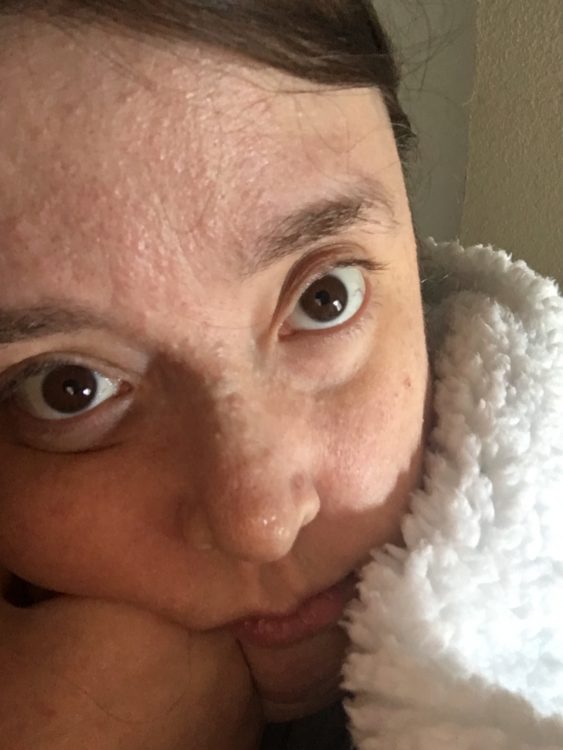If you’ve read my story with having two cancers in four years, you’ll know that after having my first cancer, I found out I have Cowden syndrome. If you ask the average person, they’ll likely tell you they’ve never heard of it. So, here’s a reminder. Cowden syndrome is also called PTEN Hamartoma syndrome. Your PTEN gene is your tumor inhibitor gene. It causes growths, benign tumors, skin tags, thyroid goiters, hamartomas, vascular issues, enlarged heads, and puts you at risk for many cancers. Once diagnosed, your doctor will want to refer to many specialists who will want to watch you closely to make sure you don’t develop cancer — or if it does come around, it’s caught early.
As someone who has dealt with this for going on four years now, here are five things I want people to know about Cowden syndrome.
- Every year, I go through what I like to call “testing season.” My skin is checked for anything suspicious. My thyroid is scanned via ultrasound. I used to get mammograms, but then I went and got breast cancer. I have colonoscopies. (I had 37 polyps this time around, and my doctor feels I need to do them every year now. My soul is still weeping at this news.) This period of my life is something I live with, but it’s not easy. If you’re a cancer survivor, think of your three, six, yearly check-ups, but done all at the same time. It’s something we have learned to live with, but anxiety during this time is real. Testing season is exhausting, but the alternative — getting a third cancer and not finding it before I need chemotherapy or radiation, or God forbid, it kills me — is much worse.
- It’s not unusual for people to remove parts of their body to avoid getting cancer. I know people who have had preventative mastectomies, hysterectomies, even thyroidectomies because they did not want cancer. I used to think this was extreme; why go through surgery if you don’t need to? But now, after having undergone so many tests and being watched so closely in the name of preventing a third cancer, I see why some people take this measure. Sometimes, the lesser of two evils, removing a body part to make sure you don’t have to face a cancer diagnosis, is the best choice.
- Hamartomas are not the same thing as blackheads. As a teen, I thought I had an excessive amount of blackheads on my forehead, nose and parts of my cheeks. I later discovered they were hamartomas. They don’t go away, no matter how hard you wash your face, scrub it, or pick at them. My dermatologist has even said burning them away is pointless, they just grow back. Not everyone has “bad skin.” Sometimes, they’re dealing with something much more complicated.
- Cowden feels like the gift that never stops giving you gifts that you cannot give back. I have had a goiter in my thyroid since I was 22. I have pretended I was the earth, and the skin tags that invaded my neck, under my breasts and legs were the trees, sprouting up throughout my body as a way to deal with all of these skin tags for years now. I have had two cancers because of Cowden, and some days I am overwhelmed because I keep thinking about the possibilities of what will happen next. Next year my thyroid comes out because the nodules are still growing, and starting to cause problems. No cancer is there — but thanks to Cowden, it’s still growing.
- The last thing I want you to know about Cowden syndrome? It exists. Those of us who have it exist. Back in 1978, when I was born, no one knew about Cowden syndrome, and my doctors were so perplexed they referred to my large head and numerous issues as “Kathi Hunter syndrome”. The more we talk about this condition, the more people will see it and maybe go get tested. The more doctors will learn so they can improve how they treat their patients.So, there you have it. Cowden syndrome. It’s real, it’s out there, and it affects more people than you realize.

This story originally appeared on Medium

